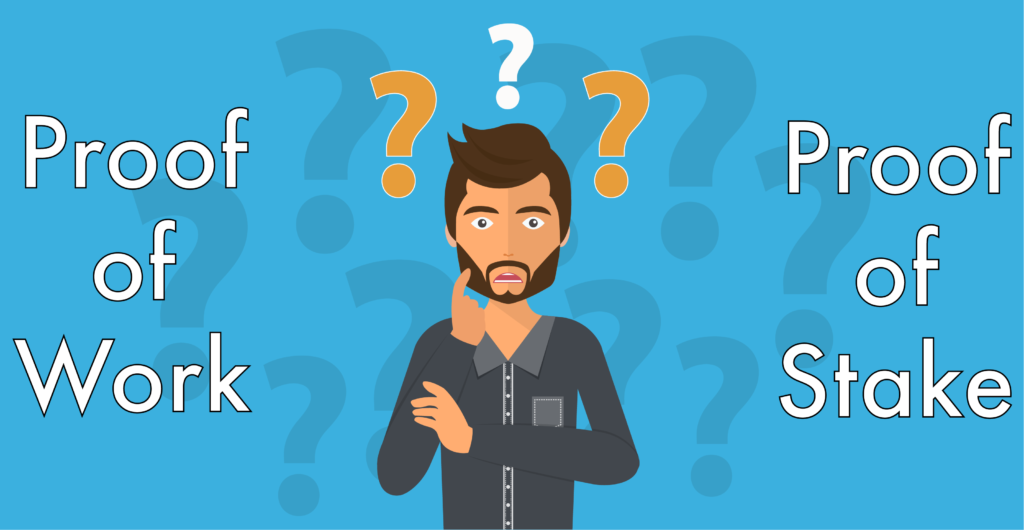PoW
PoW, short for Proof of Work, is an algorithm used within a Blockchain network to achieve trustless and distributed consensus.
Do you want to know more about Proof of Work and get a better insight into what is PoS? Read further to find out.
Table of contents
What is PoW (Proof of Work)?
PoW, short for Proof of Work, is an algorithm used within a Blockchain network to achieve trustless and distributed consensus.
Explained in further detail, a trustless and distributed consensus system means that if you want to send and/or receive money from someone, you don’t need to trust in third-party services.
The origins of Proof of Work
The concept of PoW was originally introduced by Cynthia Dwork and Moni Naor in 1993 but got its official term in 1999 by Markus Jakobsson and Ari Juels in 1999.
The concept was not used broadly until Satoshi Nakamoto discovered its powerful capabilities which were implemented in the Bitcoin network.
Given that, Proof of Work is probably the most important idea behind the Bitcoin whitepaper since it created a system that does not rely on trust or single parties to confirm transactions within the network.
What’s more, with Bitcoin and a number of other cryptocurrencies, all participating nodes (computers) have access to the ledger (blockchain). Therefore, anyone can directly verify the information written and there is no need for a third party.
When it comes to Proof of Work coins, cryptocurrency miners compete against each other in hopes of confirming more transactions and getting the rewards of a block.
The more computing power (hash rate) a computer has, the more complex calculations it can solve, and thus the higher the chance of getting the rewards of a block.
How does PoW work?
Proof of Work algorithm requires users to “work” in order to get rewards. This form of work is translated into cryptographic calculations that need to be made in order to confirm a transaction on the network. Essentially, miners are competing with each other as to who will solve the correct problem first. The solution to the problem is also known as a “hash”.
But why compete to solve cryptographic calculations? Well, every time that a miner manages to validate a transaction successfully (by solving the right calculations) they receive a reward in the form of cryptocurrency.
The cryptocurrency they receive will depend on the network that they are solving these complex cryptographic transactions on. For example, if a miner validates a transaction made on the Bitcoin network, he will receive a reward in Bitcoin.
But that is easier said than done…
These cryptographic calculations require a large amount of computational power to solve effectively. And there are hundreds of thousands of miners who all compete, whether alone or in a group, to solve a transaction block.
Once a particular miner solves the right problem and, thus, the transaction block, all other miners (nodes) are notified about it as well. This not only helps them proceed to the next mining block but ensures that there are no double-spending issues in the network.
Best of PoW coins
There are many Proof of Work coins that are worth checking out. Let’s look at them one by one:
- Bitcoin: Bitcoin is the first and most popular PoW cryptocurrency. It is the coin that introduces the concept of Proof-of-Work into the world of cryptocurrency.
- Ethereum: Ethereum has been working based on PoW consensus since it was first created. However, the team behind the cryptocurrency has been working to switch to PoS (Ethereum 2.0), a process that has not been successful as of yet.
- Litecoin: Being a lighter copy of Bitcoin, it is only normal that Litecoin is a PoW coin as well.
- Bitcoin Cash: Similar to Litecoin, Bitcoin cash is a copy of Bitcoin. It, therefore, validates transactions based on PoW.
- Monero: The privacy-oriented cryptocurrency that XMR is also mineable, due to its PoW consensus model.
- ZCash: Another privacy coin that has become popular thanks to zk-SNARKs. It also utilizes PoW.
- Ethereum Classic: A copy of Ethereum, it currently utilizes PoW and does not intend to switch to PoS, contrary to Ethereum.
Disclaimer: Don’t invest unless you’re prepared to lose all the money you invest. This is a high‑risk investment and you should not expect to be protected if something goes wrong. Take 2 mins to learn more at: https://go.payb.is/FCA-Info


